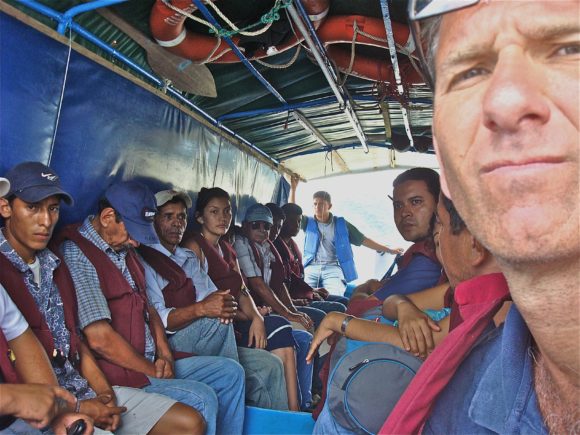
Today’s Machining World interviewed Carl Hoffman, author of The Lunatic Express, a book which chronicles his travels throughout Asia, Africa, South America and the U.S., where he attempted to travel by modes of transportation commonly used by the natives, notorious for discomfort, tardiness and poor safety.
How did you get the idea for the book?
Carl Hoffman: I’d been traveling a lot for work over the last decade in places like the Congo, Sudan and South America. I saw minivans and trains just packed with people, and people riding on the roofs of trains. My journalist sensibility was asking me, “who are these people, where are they going and why are they moving around?”
How did these people look at you, as they were traveling out of necessity for work and you were this American traveling alone to document an adventure?
CH: They looked at me with incredible curiosity and openness. Most of these people don’t travel alone. They travel with family members. Most people spend very little time in their whole lives alone. They sleep in big piles in a one-room apartment or a shack somewhere, and then they have this incredibly long commute in a crowded minivan or matatu or train, and they have a job that’s full of people. They kept asking me, “Are you alone? Why are you alone? Where’s your family? Why are you here? Why aren’t you traveling in first class, or why aren’t you flying?”
Did you see much manufacturing going on during your travels?
CH: Well, one really cool thing throughout the Third World is the amount of small scale manufacturing and small scale human enterprise. In Bangladesh, you can walk down the street and there’s nothing but bicycle rickshaw shops, and guys are welding and banging and doing it in bare feet without shirts. It’s hot, and they’re building things. I had a bicycle messenger bag and its zipper was broken. One day I was just sitting around having tea in the park with some shoe shiners and an ear cleaner that had I buddied up with. One of them suddenly pointed at my zipper and he grabbed my bag and went at it with a little wax from his kit and a razor blade. And with incredible care, he fixed my zipper. It’s the sort of thing that only a poor Indian in a park would do. We don’t fix a zipper. We take it in and send it away, and maybe they send back a new one or they rip the whole zipper out and sew a new one in. This guy fixed it. They have a whole mentality and culture of fixing things and building things, and it’s kind of been lost here.
